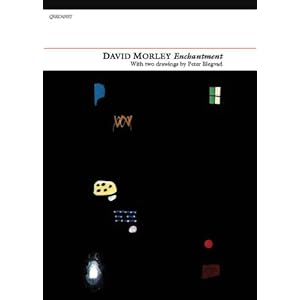This is a post I wrote back in 2011, but I’m re-posting, because both poets have been drawn to my attention today. David Morley has just won the Ted Hughes prize for his collected poems The Invisible Gift, and Matt Merritt has just published a prose book called A Sky Full of Birds.
I pinched this title from Gary Snyders poem What You Should Know to be a Poet
which is a poem I found very inspiring when I came back to poetry (for about the fifth time – I used to describe myself as a recidivist poet). The point Snyder was making was that poetry had to be grounded in a deep understanding of the world around us, firstly the material facts, but also the way other humans feel about it and relate to it. Snyder’s poems often read easy, but they are actually very scholarly in an extraverted way that is completely different from the narcissistic complaining or self-satisfaction that tempts those of us who spend a lot of time looking inside our own heads for stuff to work with.
But then we have to think of the kind of “knowing” we are looking for. I’ve been spending some time with geek poets, mostly bird-watchers. I’m interested in birds but I hate twitchers with their ticks on their life-lists and their macho competing to see some poor creature which is only here because it’s lost. Frankly I’m only interested in people who love what they’re doing, so the geek poets really give me pleasure even before I read the poems.
David Morley is an ecologist by background, and it shows. His poems are full of exact species names (not always Latin) and technical terms, and he avoids romantic and anthropomorphic responses to the fish, dragonflies and birds he writes about. Observations are detailed
“head-butting the surface to see
at eyelash-level the whiphands of Common Backswimmers surge
and sprint, each footing a tiny dazzle to prism.”(Dragonflies)
but delighted (a perfect combination in my book). But it’s not all about the creatures. There’s a balanced debate about the conservation movement in Proserpina, and a reminder that climate change is not a new thing to the earth, however cataclysmic it feels to us, in The Lucy Poem.
This section of the book “Fresh Water” is only the first; there re two other sections dealing with Romany tales including Hedgehurst which reminds me a lot of Tim Atkins‘ Folklore, and with poems about the circus. I think I may say more about them when I’ve got into Morley’s earlier books. They deal with alienation and estrangement and take me into territory I’d like to know more about.
Matt Merritt, however, feels to be on very familiar ground. The poems are intensely visual, and his detailed knowledge and love of birds is obvious – Loons, Ringing Redstarts, and Knots, and it’s not only birds, there’s a lovely one called Hares in December – but most of the poems are about love death, memory and the mutability of human relationships. They are powerful and moving at that level, but there’s also something else going on that emerges as you see the book as a whole. There’s a lot of stuff written just now about the fallacy of humans seeing themselves as detached or separate from nature and how we need to recognise ourselves as one with it. This doesn’t seem to be a problem for Matt Merritt. There seems very little distinction between the act of living and writing – love is “written” on the sky, lives are drawn in, revised or erased across a landscape, as if humans are poems written by the earth. I like this. His writing is not just understanding but connecting.
Troy Town is an earlier book. Matt Merritt has since published a new collection called hydrodaktulopsychicharmonica, and you can see some of his more recent work at his blog Polyolbion.

